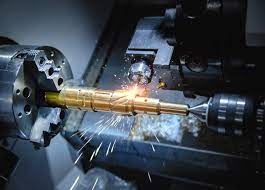CNC turning have become a linchpin in modern manufacturing, known for their precision and versatility. These services are essential for businesses aiming to create high-quality components efficiently. However, the landscape of international trade is governed by import and export regulations, which can significantly influence how CNC turning services are employed. In this article, we delve into the intricate relationship between CNC turning services and import/export regulations and the impact on businesses.
Import Regulations
Import regulations play a pivotal role in controlling the entry of products and components into a country. These regulations ensure that what enters a nation’s borders complies with safety, quality, and environmental standards. While import regulations are designed with good intentions, they can have far-reaching effects on businesses that rely on CNC turning services.
One of the challenges posed by import regulations is the need for businesses to demonstrate the origin and composition of the components they’re importing. In the case of CNC turning services, this means providing detailed information about the materials used, machining processes, and quality control measures. Depending on the country and industry, these regulations can sometimes be quite stringent.
Exporting CNC-machined parts comes with its own set of challenges, primarily related to export regulations. These regulations are designed to control the shipment of goods to other countries, ensuring compliance with international agreements and national security interests. Export regulations can impact the use of CNC turning services in multiple ways.
Challenges and Compliance
The compliance requirements associated with import and export regulations can be quite intricate. For businesses utilizing CNC turning services, this means staying current with changing regulations and ensuring that their practices align with the evolving standards.
For CNC turning service providers, maintaining compliance often involves meticulous record-keeping, documentation, and transparency. Having a robust quality control system in place is crucial. The ability to provide accurate documentation that proves adherence to international and national standards can be the difference between smooth trade and complications at the border.
Business Strategies and Solutions
Navigating the intricate waters of import/export regulations when using CNC turning services requires well-thought-out strategies. Businesses can adopt practices such as conducting thorough due diligence when choosing a CNC turning service provider. Look for providers experienced in international trade who can help you meet compliance standards. This includes understanding the export classification of your components, obtaining export licenses when necessary, and ensuring proper documentation.
Collaboration with experienced CNC turning service providers not only eases the regulatory burden but also ensures that your components meet the required standards, making the import/export process smoother. By leveraging their expertise, businesses can optimize the use of CNC turning services without getting bogged down by compliance challenges.
Conclusion
In conclusion, the world of CNC turning is not isolated from the broader landscape of import/export regulations. These regulations are a critical part of international trade and can significantly influence how businesses employ CNC turning services. Meeting the compliance requirements is not just a matter of fulfilling legal obligations; it’s a strategic necessity to ensure the smooth import and export of CNC-machined parts. For businesses seeking CNC turning services that are well-versed in navigating the complexities of import/export regulations, “Shamrock Precision” offers the expertise required.

